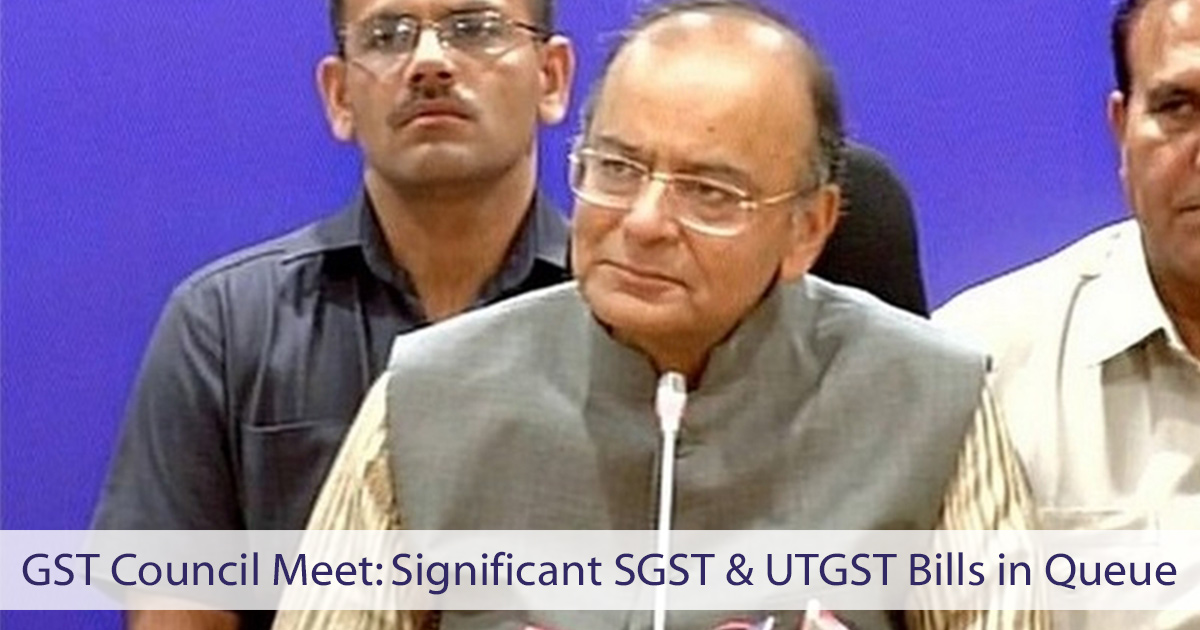The ongoing meeting of the GST council has been expected to pass out the two remaining legislature in order to give a start to the countries most ambitious taxation regime. The SGST and the UTGST are two remaining bills which are needed to be cleared for the progress of the tax scheme.
The SGST bill which is known as State Goods and service tax will be the tax collection within a state where a goods or service has been produced. The earning will be of the state itself and all the other tax like VAT and service tax will be subsumed in this SGST. Apart from this, the UTGST which comprises Andaman and Nicobar Islands, Chandigarh, Dadra and Nagar Haveli, Daman and Diu, Delhi (National Capital Territory of Delhi), Lakshadweep, Puducherry will fall under this scheme and all the transactions of goods and services under this regions will fall under the UTGST which has a separate set of rules and regulations for these special regions.
The council has given a green flag to the other bills i.e. central GST (CGST) and integrated GST (IGST) in which the capping was done at 40 percent peak. The slab rates were fixed 5, 12, 18 and 28 percent and none of the states offended by these rates. The government is trying very hard to approve the bills in this ongoing session so as to save time and create some healthy time frame to execute the remaining obligations. The council and administration showed a quick response last month and passed a significant bill which provided the compensation for the states who suffers any revenue loss after the implementation of the GST.









